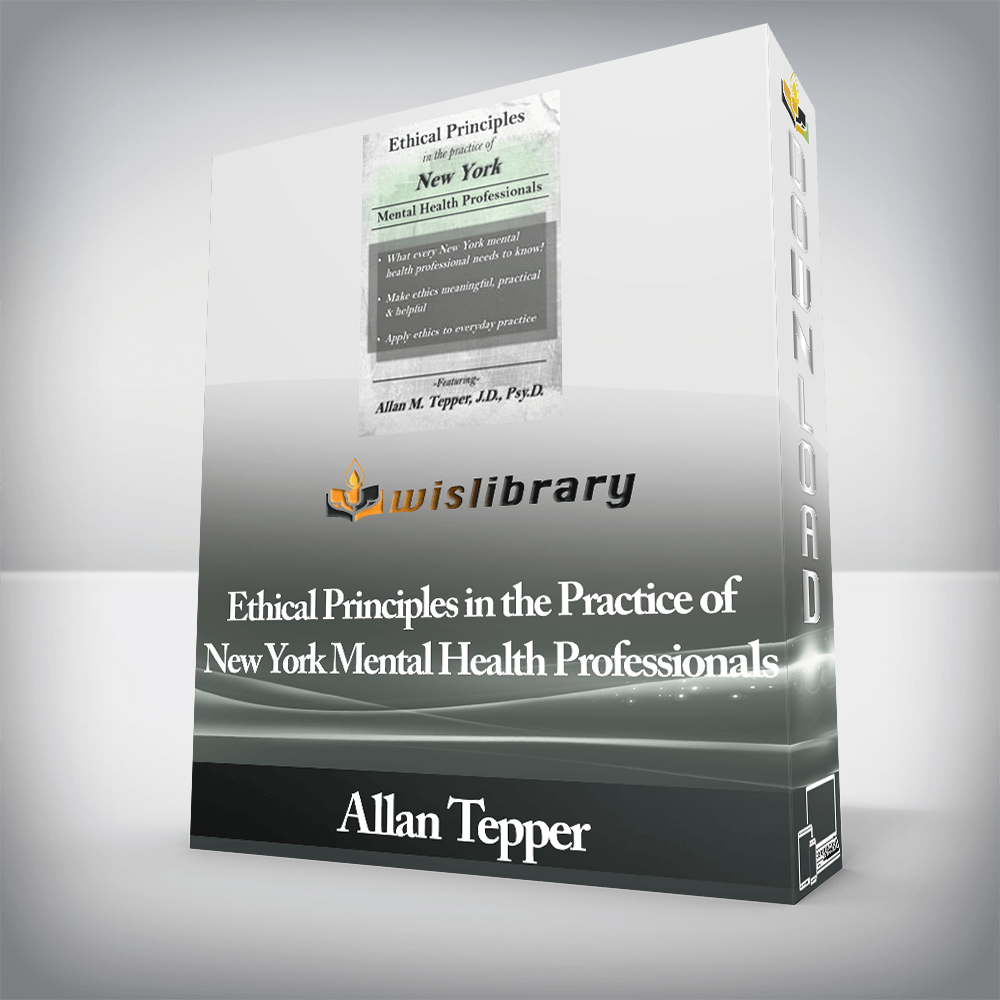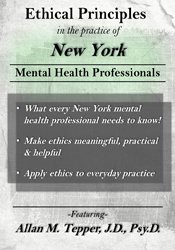

This program explores the manner by which clinical and ethical issues effect…

Many continuing education ethics programs are generic in nature. Many continuing education ethics programs stress risk management strategies to the detriment of the attendees, especially if an attorney presenter is involved.
This program is different. Rather than avoiding clinical issues, this program explores the manner by which clinical and ethical issues effect the everyday practice of the mental health professional in New York. This unique blend of clinical and ethical concerns allows for a more meaningful understanding and interpretation of the rules that govern mental health practice.
These goals are reached through the experience and the interactive style of the presenter, Allan M. Tepper, J.D., Psy.D. Different from other individuals who possess joint degrees in psychology and law, Dr. Tepper actually maintains an active psychology practice and an active law practice. He functions as a clinician, and he represents mental health professionals who experience legal difficulties. In this regard, Dr. Tepper brings an extremely unique perspective to the practical understanding of ethics.
These goals also are reached through the manual utilized in the seminar. The manual materials are not generic in nature. All of the written materials are state specific to New York.
When interacting with an attorney, it sometimes is difficult to hear the words, “Trust me.” For this seminar, however, we do say, “Trust us!!” We guarantee, you won’t walk away disappointed.

Allan M. Tepper, JD, PsyD, is engaged in the private practice of both law and psychology in Philadelphia, Pennsylvania. As a psychologist, he specializes in forensic matters and has testified on numerous occasions in cases involving civil, criminal, domestic relations, and death penalty issues. As an attorney, he has extensive trial experience, including the representation of mental health professionals in ethics and licensing board proceedings. He has been an adjunct faculty member at Widener University in the Institute for Graduate Clinical Psychology, and at the Philadelphia Chapter of Great Lakes Colleges Association, and an adjunct assistant professor at Immaculate College, Graduate School. Dr. Tepper conducts ethical training for mental health professionals throughout the United States and is well-known for his engaging style. He publishes frequently in the areas of law and psychology. He is co-author of Pennsylvania Law and Psychology – Fourth Edition. He received his JD degree from Albany Law School and received MS and PsyD degrees in clinical psychology from Hahnemann University in Pennsylvania. Visit his website at www.allanmtepper.com.
Speaker Disclosures:
Financial: Dr. Allan Tepper maintains private law and psychology practices. He receives a speaking honorarium and recording royalties from PESI, Inc. He is a published author and receives royalties. He has no relevant financial relationships with ineligible organizations.
Non-financial: Dr. Allan Tepper has no relevant non-financial relationships.
Understand the Legal System
Legal Exposure
Establish the Treatment Relationship
Record-Keeping Practices
The Ethics of Duty to Warn
Treatment of Minors
Non-Sexual Boundary Violations
There are no reviews yet.
You must be <a href="https://wislibrary.org/my-account/">logged in</a> to post a review.